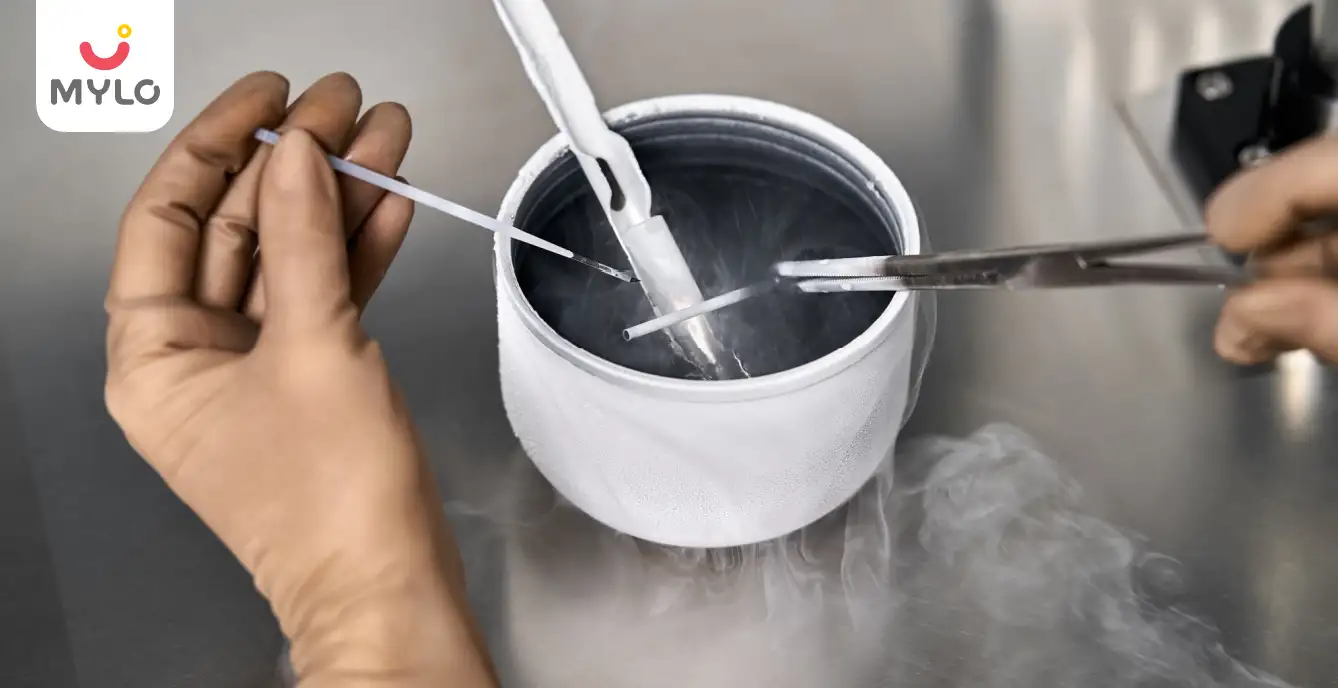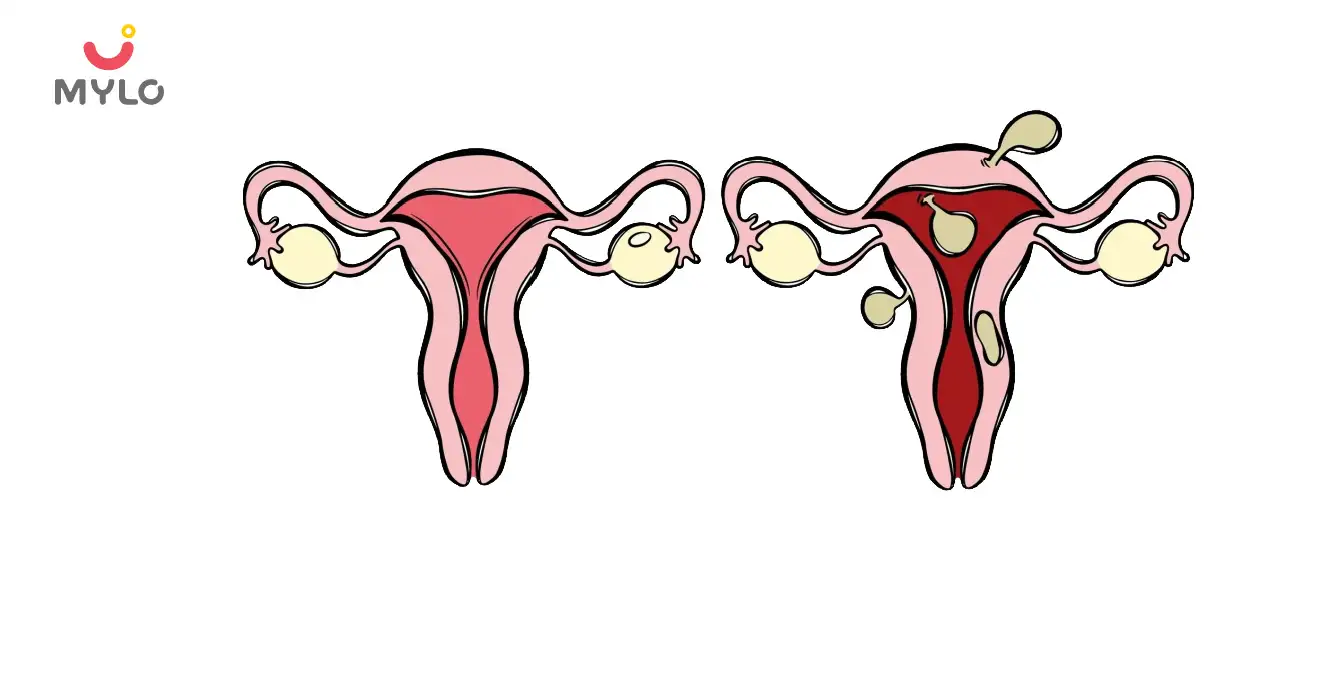Home

Watery Discharge Before Period: Is It Normal or a Cause for Concern
In this Article

Getting Pregnant
Watery Discharge Before Period: Is It Normal or a Cause for Concern
Updated on 4 October 2023
Watery discharge before period is a common occurrence among women. Some may experience it regularly, while others may only experience it occasionally. It can be concerning for some, especially if it’s their first time experiencing it.
In this article, we will explore whether watery discharge before a period is normal or a cause for concern, its causes, when to see a doctor, and ways to manage it.
Is white watery discharge before period normal?
Yes, white watery discharge before a menstrual period is normal for most women. It is a sign that the body is preparing for menstruation. The discharge is usually thin, clear, and odorless. It may also be slightly sticky or creamy in texture. This type of discharge is known as cervical mucus.
Cervical mucus is produced by the cervix, which is the opening to the uterus. It helps to keep the vagina clean and lubricated. The amount and consistency of cervical mucus may vary throughout a woman's menstrual cycle. It is usually thicker and creamier during the first half of the cycle and thinner and more watery during the second half of the cycle.
You may also like : Types of Vaginal Discharge, What They Mean and What is Normal?
Is watery discharge before period sign of pregnancy?
Watery discharge before a period can also be a sign of pregnancy. If a woman is pregnant, her body will produce more estrogen, which can cause an increase in cervical mucus. The mucus may be thin, watery, and milky white in color.
Other early signs of pregnancy may include missed periods, fatigue, nausea, and breast tenderness. If you suspect that you may be pregnant, it is important to take a pregnancy test and consult with your healthcare provider.
What causes watery discharge before period?
Let us understand some reasons that may lead to a watery discharge before a woman gets her period:
1. Hormonal changes
Hormonal changes during a menstrual cycle can cause an increase in cervical mucus, resulting in watery discharge before a period.
2. Sexual arousal
Sexual arousal can cause an increase in vaginal secretions, resulting in watery discharge.
3. Infection
Infections such as yeast infections, bacterial vaginosis, and sexually transmitted infections can cause an increase in vaginal discharge.
4. Allergies
Allergies to certain products such as soap, detergents, or condoms can cause irritation and an increase in vaginal discharge.
5. Medications
Certain medications such as birth control pills, hormone replacement therapy, and antibiotics can cause changes in vaginal discharge.
Types of discharge before period
There are different types of discharge that a woman may experience before her period. These include:
1. Watery discharge
Thin, clear, and odorless discharge that may be slightly sticky or creamy.
2. Milky white discharge
A milky white discharge before period may be a sign of pregnancy.
3. Bloody discharge
Bloody discharge before a period may be a sign of an underlying health condition such as endometriosis or cervical cancer.
4. Brown discharge
Brown discharge before a period may be a sign of old blood that has not been properly expelled during the last menstrual cycle.
You may also like : The Hormonal Dance: Understanding Which Hormones Regulate Menstrual Cycle
When to see a doctor?
Most cases of watery discharge before a period are normal and do not require medical attention. However, if you experience any of the following symptoms, it is important to see a doctor:
1. Foul-smelling discharge
2. Abnormal color or consistency of discharge
3. Itching, burning, or irritation in the vaginal area
4. Pain during sexual intercourse
5. Pain or discomfort in the pelvic area
How to manage watery discharge before period?
Here are some steps you can take to manage white watery discharge before period:
1. Wear panty liners
Panty liners can help to absorb the milk white discharge before period and keep you feeling fresh throughout the day.
2. Practice good hygiene
Good hygiene practices such as washing the vaginal area with warm water and mild soap can help to keep the area clean and reduce the risk of infection.
3. Avoid douching
Douching can disrupt the natural balance of bacteria in the vagina and increase the risk of infection.
4. Avoid scented products
Scented products such as soaps, detergents, and perfumes can irritate the vaginal area and increase the risk of infection.
5. Stay hydrated
Drinking plenty of water can help to keep the body hydrated and reduce the thickness of cervical mucus.
Final Thoughts
Watery discharge before period is a common occurrence among women and is usually normal. However, if you experience any abnormal symptoms or are concerned about your vaginal health, it is important to see a doctor. Practicing good hygiene, avoiding douching and scented products, and staying hydrated can help to manage discharge before a period. Remember to listen to your body and seek medical attention if necessary.
References
1. Mitchell H. (2004). Vaginal discharge--causes, diagnosis, and treatment. BMJ.
2. Thiyagarajan DK, Basit H, Jeanmonod R. Physiology, Menstrual Cycle. (2022). In: StatPearls [Internet]. Treasure Island (FL): StatPearls Publishing



Written by
Anupama Chadha
Anupama Chadha, born and raised in Delhi is a content writer who has written extensively for industries such as HR, Healthcare, Finance, Retail and Tech.
Read MoreGet baby's diet chart, and growth tips

Related Articles
Related Questions
Influenza and boostrix injection kisiko laga hai kya 8 month pregnancy me and q lagta hai ye plz reply me

Hai.... My last period was in feb 24. I tested in 40 th day morning 3:30 .. That is faint line .. I conculed mylo thz app also.... And I asked tha dr wait for 3 to 5 days ... Im also waiting ... Then I test today 4:15 test is sooooo faint ... And I feel in ma body no pregnancy symptoms. What can I do .

Baby kicks KB Marta hai Plz tell mi

PCOD kya hota hai

How to detect pcos

Related Topics
RECENTLY PUBLISHED ARTICLES
our most recent articles

Male Infertility
Sperm Cramps: Debunking Myths and Shedding Light on the Facts

Diet & Nutrition
Bitter Gourd During Pregnancy: Benefits and Precautions You Should Know

First Period After Failed IVF Cycle: What to Expect and How to Cope

Fertility
Freezing Eggs: The Pros and Cons of Preserving Your Fertility

Fertility Problems
Can a Diabetic Woman Get Pregnant: Exploring the Facts and Myths

Women Specific Issues
Bulky Uterus with Fibroids: Understanding Causes, Symptoms, and Treatment Options
- Tubal Recanalization: How This Procedure Can Help Restore Your Fertility
- Are FSH (Urofollitropin) Injections an Effective and Safe Fertility Treatment For You?
- The Ultimate Guide to Choosing a Baby Massage Oil for Summer
- The Ultimate Guide to Understanding a Follicle Size Growth Chart
- Fruits for PCOS: Your Guide to Making Healthy Choices
- Is Milk Good for PCOS: Exploring the Dairy Dilemma
- The Ultimate Guide to Using Ashokarishta for PCOS
- PCOS Pain: The Ultimate Guide to Causes and Effective Management
- 10 Best Mystery Books to Read in 2023
- 10 Best Non-Fiction Books to Read in 2023
- Is Ghee Good for PCOS: The Ultimate Guide to Benefits and Ways to Consume
- Is Curd Good for PCOS: The Ultimate Guide to Debunking Myths and Discovering Benefits
- Dark Chocolate for PCOS: Unlocking the Potential of a Guilt-Free Indulgence
- Beetroot for PCOS: Discovering a Natural Approach to Managing Symptoms


AWARDS AND RECOGNITION

Mylo wins Forbes D2C Disruptor award

Mylo wins The Economic Times Promising Brands 2022
AS SEEN IN

- Mylo Care: Effective and science-backed personal care and wellness solutions for a joyful you.
- Mylo Baby: Science-backed, gentle and effective personal care & hygiene range for your little one.
- Mylo Community: Trusted and empathetic community of 10mn+ parents and experts.
Product Categories
baby carrier | baby soap | baby wipes | stretch marks cream | baby cream | baby shampoo | baby massage oil | baby hair oil | stretch marks oil | baby body wash | baby powder | baby lotion | diaper rash cream | newborn diapers | teether | baby kajal | baby diapers | cloth diapers |




